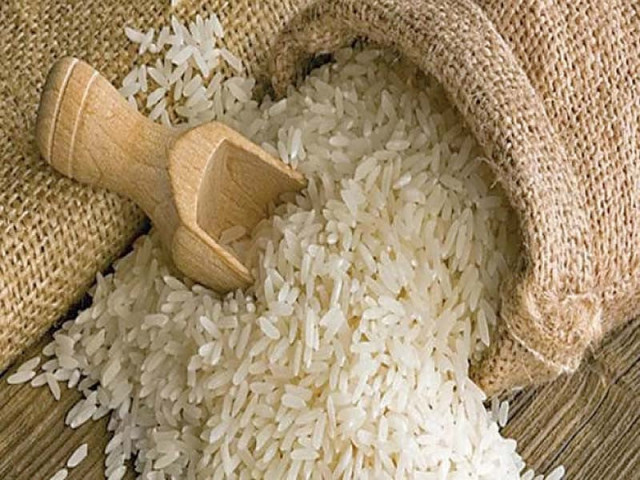Tags
Basmati exports plunge
Fall to 43,895 tons primarily due to closure of Iran border
SHAHRAM HAQ

LAHORE: Pakistan’s Basmati rice exports plummeted to a low of 43,895 tons in April 2025, marking the worst monthly performance in the current fiscal year (July 2024-April 2025), according to data released by the State Bank of Pakistan (SBP).
The sharp decline came despite a strong export surge earlier in the year, including a magical figure of 100,780 tons achieved in February 2025, a month with only 28 days. Hamid Malik, a commodities’ expert, attributed April’s slump primarily to the closure of Iran border during the month, a critical route for Pakistan’s Basmati, though he noted that exports to Iran rebounded at a brisk pace in May.
Overall, Basmati exports for the first 10 months of FY25 stood at 707,875 tons, a 15% jump from 612,126 tons during the same period of last year. However, non-Basmati exports dipped slightly to 4,390,333 tons (from 4,474,855 tons in FY24), with Malik warning of a potential 3-4% annual decline due to stiff competition from India, which is flooding African markets with cheaper rice.
Total rice exports for the 10-month period remained nearly flat at 5.08 million tons, reflecting mixed trends.
Further complicating trade, shipments faced delays in late April due to protests on the Indus Highway by the Sindh nationalist groups demanding better water distribution. The blockade disrupted truck movements for days, creating backlogs at Karachi Port. While the protests have subsided, exporters fear recurring disruptions, primarily due to Pak-India tensions that could dent Pakistan’s reputation as a reliable supplier. Malik projected Basmati exports would finish the fiscal year stronger than last year, citing Iran’s resumed imports and steady demand from the UAE and Saudi Arabia.
However, Jahandad Khan, an agricultural economist, cautioned that Pakistan’s non-Basmati sector risks losing long-term market share unless it addresses structural issues like high production costs and outdated farming techniques. He urged investment in climate-resilient crops to counter India’s pricing advantage. Meanwhile, logistics analyst Ali Raza highlighted Pakistan’s growing reliance on air freight for premium Basmati shipments to Europe and the US, saying that quality-conscious buyers are willing to pay more, but shipping delays via road or sea remain a hurdle.
Pakistan ranks among the world’s top rice exporters, renowned for its aromatic Basmati and affordable non-Basmati varieties. Key markets include Iran, China, East Africa and the Middle East.
While India remains its fiercest competitor in non-Basmati trade, Pakistan’s Basmati holds a niche due to its distinct quality. Still, Malik stressed the need for better trade diplomacy and infrastructure upgrades to sustain growth amid geopolitical and climate challenges. As the fiscal year closes, stakeholders remain watchful of monsoon forecasts and global price shifts, factors that could define Pakistan’s rice trade fortunes in 2026.
https://tribune.com.pk/story/2546450/basmati-exports-plungePublished Date: May 19, 2025






